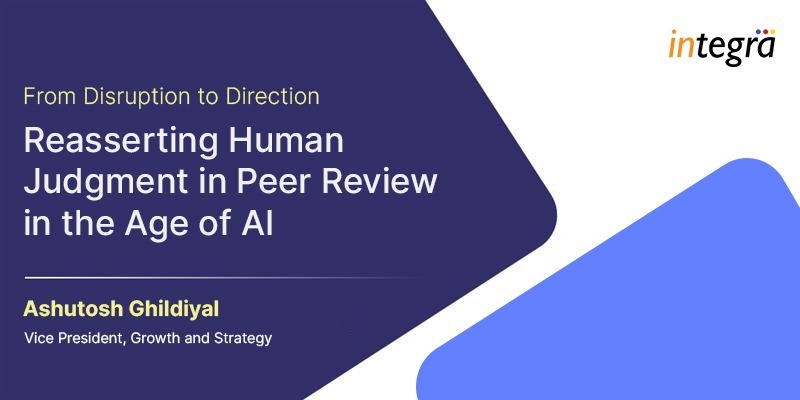Implementing Predictive Analytics for Small Business: The Ultimate Guide

Predictive analytics, a game-changer in the modern business landscape, is rapidly gaining traction among small businesses. The global predictive analytics market was valued at USD 10.5 billion in 2021 and is projected to reach USD 28.6 billion by 2026. This potential of predictive analytics to enhance decision-making, understand customer preferences, and manage risks is particularly significant for smaller enterprises operating in competitive markets. Reports indicate that 66% of sales professionals have experienced increased sales velocity due to the use of predictive analytics. Furthermore, sales teams that incorporate predictive analytics are almost three times more likely to achieve outstanding or very good performance levels. But the question remains: How can small businesses effectively leverage predictive analytics with limited resources? This guide aims to demystify predictive analytics and demonstrate its accessibility and practicality for small businesses.
Understanding Predictive Analytics
Predictive analytics in the small business context is a powerful tool that goes beyond traditional data analysis methods. This approach involves sophisticated techniques such as machine learning, which enables computers to learn from and make decisions based on data, data mining, which involves extracting patterns from large datasets, and other advanced statistical methods. This means making informed decisions based on data-driven forecasts rather than intuition.
Unlike traditional analytics, which focuses on what has happened, predictive analytics anticipates what will happen. This foresight enables small businesses to be proactive rather than reactive in their strategies.
The Value of Predictive Analytics for Small Businesses
The benefits of predictive analytics for small businesses are extensive. From sharpening decision-making processes and gaining deeper customer insights to effective risk management, these tools can offer small enterprises a competitive edge. The following are its major benefits:
- Informed Decision-Making: Predictive analytics enables small businesses to base their decisions on data-driven insights. This leads to more strategic planning, effective resource allocation, and improved performance.
- Enhanced Customer Insights: Understanding customer behavior and preferences is crucial for small businesses. Predictive analytics helps in segmenting customers, predicting purchase patterns, and tailoring marketing strategies to meet customer needs more effectively.
- Improved Risk Management: Small businesses can use predictive analytics to identify potential risks and develop strategies to mitigate them. This includes financial risk management, operational risks, and market-related risks.
- Cost Efficiency in Marketing: For instance, a small coffee shop in New York utilized predictive analytics to identify customers at risk of churning. By sending these customers targeted discount offers, the shop reduced its marketing expenses by 38 percent. This approach allowed for a more efficient allocation of resources, focusing less on steadfast patrons and unrecoverable losses.
One area where predictive analytics has brought significant value is the healthcare industry. Large hospitals today are facing challenges with patient readmissions and resource allocation. By analyzing historical patient data, admission records, and socio-economic factors, the models can predict the likelihood of a patient being readmitted within 30 days of discharge. Armed with this information, the hospital could proactively intervene with targeted care plans for high-risk patients, reducing readmission rates. Additionally, predictive analytics can help in better resource allocation, optimizing staffing levels and bed availability based on predicted patient inflow. This not only will improve patient outcomes but also will help in substantial cost savings, demonstrating the transformative impact of predictive analytics on healthcare efficiency and patient care.
Key Steps in Implementing Predictive Analytics
- Data Collection: The accuracy of predictive analytics is highly dependent on the quality of data collected. Small businesses need to ensure they are collecting relevant, accurate, and up-to-date and correctly-labelled data. This can be achieved through various methods, including customer surveys, transaction tracking, and market research.
- Choosing the Right Tools: The market offers a plethora of analytics tools suited for different business sizes and needs. Small businesses should focus on finding cost-effective, scalable, and user-friendly tools that align with their specific objectives and data capabilities.
- Skill Development: For successful implementation, it’s vital for small businesses to have the necessary analytical skills. This can be achieved by training existing staff, hiring skilled professionals, or forming partnerships with analytics experts.
- Deployment: Careful planning is needed to integrate predictive analytics into existing business operations. This includes setting measurable objectives, choosing appropriate predictive models, and continually refining these models based on feedback and results.
Challenges and Solutions
The journey towards implementing predictive analytics in small businesses is not without hurdles. Budget constraints can be addressed by leveraging cost-effective, cloud-based analytics solutions. Begin with basic analytics models and gradually evolve. Leveraging user-friendly platforms that simplify complex data processes can make predictive analytics more approachable for small business teams.
Addressing data privacy concerns requires a clear understanding of data regulations and implementing robust data governance practices. Ensure that your data collection and analysis practices comply with laws like GDPR or CCPA. Invest in secure data storage and encryption methods to protect sensitive information. Regular security audits and employee training in data privacy best practices can further mitigate risks.
Predictive analytics represents a significant opportunity for small businesses to gain insights, make informed decisions, and remain competitive in a rapidly changing market. By understanding its principles, realizing its benefits, and implementing it effectively, small businesses can unlock a wealth of opportunities and navigate the complexities of the modern business landscape with confidence.
Recent Blogs

Why LaTeX Still Matters in Scholarly Publishing—and How the Right Partner Makes All the Difference

Print, Pedagogy, and AI: The New Architecture of Educational Publishing



